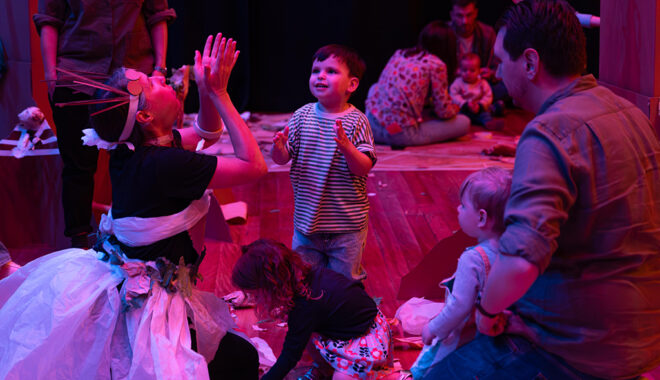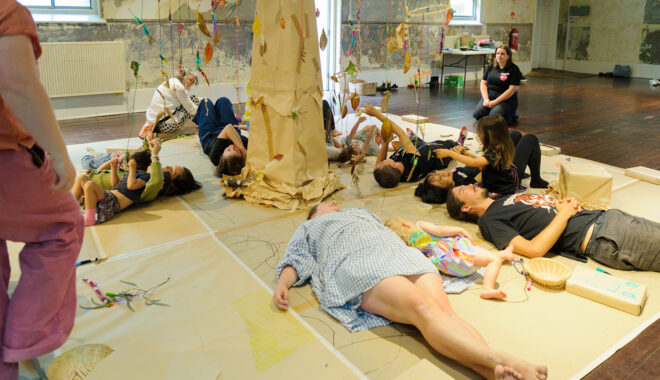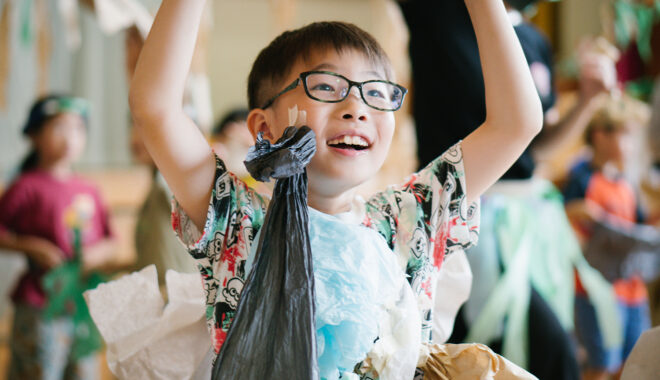20 Mar 2024 Sector & Advocacy
World Day of Theatre for Young People 2024
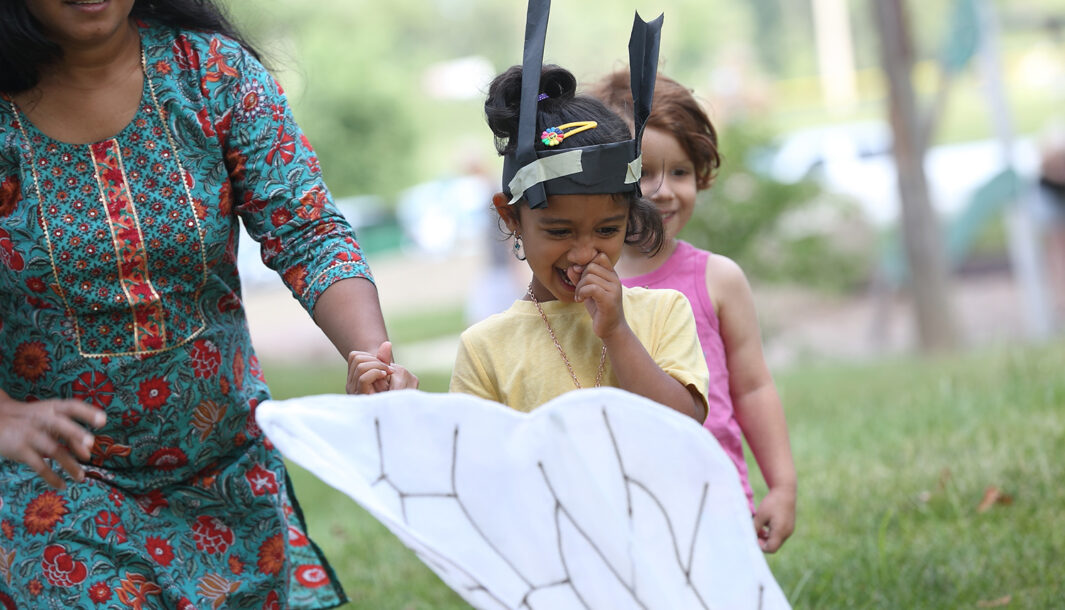
By Emily Tomlins, Associate Director
To take a child to the theatre, to places of community and to live art, is not just introducing them to the magic of storytelling or the wonder of other worlds, but also allows them to look within. It ensures that they are shown that understanding themselves is an act of identity, and that understanding others is an act of empathy.
In my first Polyglot show as a performer, I saw fun boisterous artists playing with fun boisterous children and I thought, “this isn’t for me”. Then, inside this immersive experience, I met a 10-year old girl. In silence we played together to the rhythm of a live music track. She was quiet, focused, thoughtful and completely engaged.
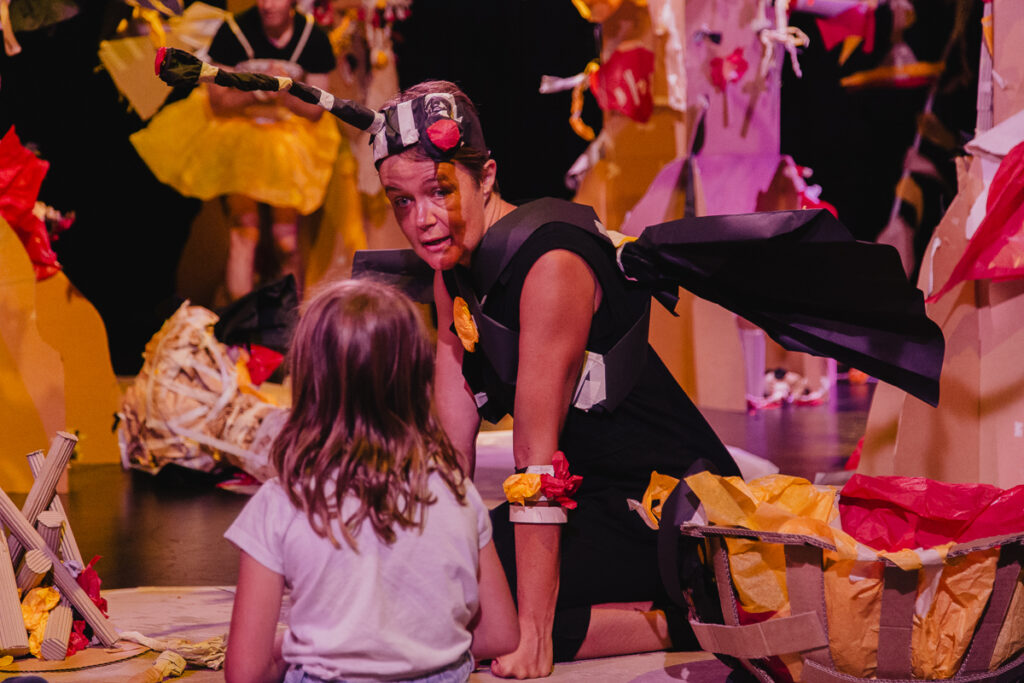
Paper Planet. Photographer: Jacinta Keefe, Footscray Community Arts
Slowly we created something together. Our process was responsive and collaborative. When this shared activity came to an end, I noticed her grandmother had been watching us quietly, standing back allowing her granddaughter to participate without intervention or prescription. The grandmother thanked me profusely, but it wasn’t the usual thanks. It was gratitude from an adult who has seen the small child in their life in a completely new light.
My previous thought, “this isn’t for me” had been turned on its head. This little girl reminded me that as a child I had been quiet, focused and thoughtful too. I longed to move through the world as boisterous, but instead I tiptoed through – wide-eyed and curious – in fact I still was. THIS, this Art/Theatre thing – this had always been for me.
Growing up, I was privileged to have access to this world, and as a kid I was completely and utterly taken over by it. And not just theatre in the traditional sense -the proscenium arch and the big costumes – but DIY theatre too – improvised adventures, dress ups, Christmas concerts, self-expression, imagination – PLAY.
Play, Theatre, Art; it lifts and broadens and educates. It enables children to see others and to see themselves. It makes them feel heard and invites them to speak. It holds their hand and gives them a much-needed push. There’s something about Theatre: the act of sharing something live, the act of breathing together, entering an imagined world side by side, hearing and feeling others’ reactions to what you can also see and feel.
What would it mean if everyone had access to this imaginative and communal world? What if access truly meant that there is a space for the boisterous and energetic, and also for the quiet and thoughtful? What if this space invites us to explore this spectrum for ourselves; imaginatively, physically, sensorily?
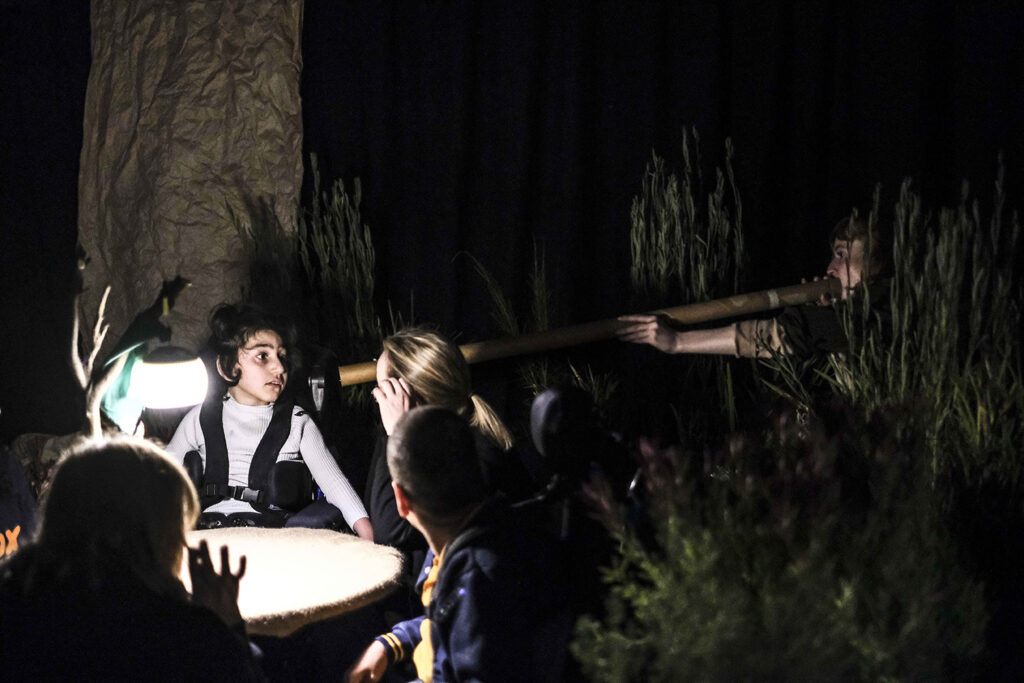
When the World Turns: disability inclusive theatre in schools. Photographer: Suzanne Phoenix
20th March is ASSITEJ International World Day of Theatre for Children and Young People. The ASSITEJ message is, “Take a child to the Theatre, today – so they can see, hear, think, feel and imagine.” This message is about valuing the rights of young people to access experiences of quality in Theatre and the Performing Arts. But this access is not only the responsibility of individuals. Some of us may not have the opportunity to take a child to the theatre, but we can advocate for its value, and the value of their experiences.
As adults we have the opportunity to introduce children to this world of imagination and knowledge, but we also have a responsibility to make sure that all children are provided this introduction, and that this relationship with curiosity and possibility continues. We can educate ourselves on the importance of these experiences, and not downplay them as extracurricular. We can advocate for these experiences to be valued in our schools and our communities. We can help to nurture a culture that places value on Art and creates spaces where the boisterous, the quiet, the energetic and the curious can all be given the confidence to speak up, empathise with others and imagine better realities.
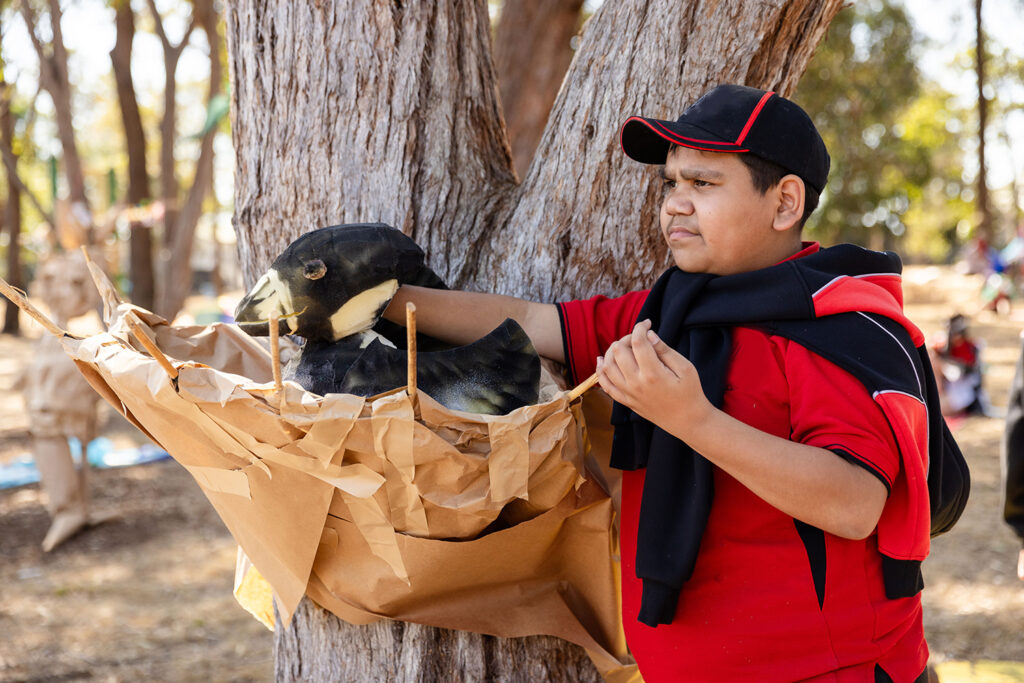
Totems. Photographer: Alicia Fox
Feature image (top): Bees. Photographer: Dan Welk, Des Moines Performing Arts



